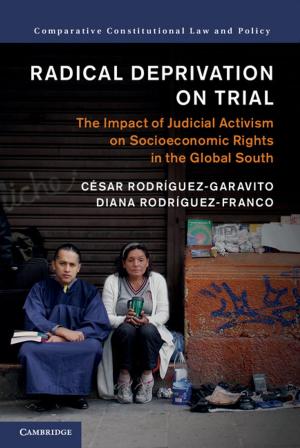Borrowing Together
Microfinance and Cultivating Social Ties
Nonfiction, Social & Cultural Studies, Social Science, Sociology, Political Science| Author: | Becky Yang Hsu | ISBN: | 9781108356138 |
| Publisher: | Cambridge University Press | Publication: | November 23, 2017 |
| Imprint: | Cambridge University Press | Language: | English |
| Author: | Becky Yang Hsu |
| ISBN: | 9781108356138 |
| Publisher: | Cambridge University Press |
| Publication: | November 23, 2017 |
| Imprint: | Cambridge University Press |
| Language: | English |
In Borrowing Together, Becky Hsu examines the social aspects of the most intriguing element of group-lending microfinance: social collateral. She investigates the details of the social relationships among fellow borrowers and between borrowers and lenders, finding that these relationships are the key that explains the outcomes in rural China. People access money through their social networks, but they also do the opposite: cultivate their social relationships by moving money. Hsu not only looks closely at what transpired in the course of a microfinance intervention, but also reverses the gaze to examine the expectations that brought the program to the site in the first place. Hsu explains why microfinance's 'articles of faith' failed to comprehend the influence of longstanding relationships and the component of morality, and how they raise doubts - not only about microfinance - but also about the larger goals of development research.
In Borrowing Together, Becky Hsu examines the social aspects of the most intriguing element of group-lending microfinance: social collateral. She investigates the details of the social relationships among fellow borrowers and between borrowers and lenders, finding that these relationships are the key that explains the outcomes in rural China. People access money through their social networks, but they also do the opposite: cultivate their social relationships by moving money. Hsu not only looks closely at what transpired in the course of a microfinance intervention, but also reverses the gaze to examine the expectations that brought the program to the site in the first place. Hsu explains why microfinance's 'articles of faith' failed to comprehend the influence of longstanding relationships and the component of morality, and how they raise doubts - not only about microfinance - but also about the larger goals of development research.















